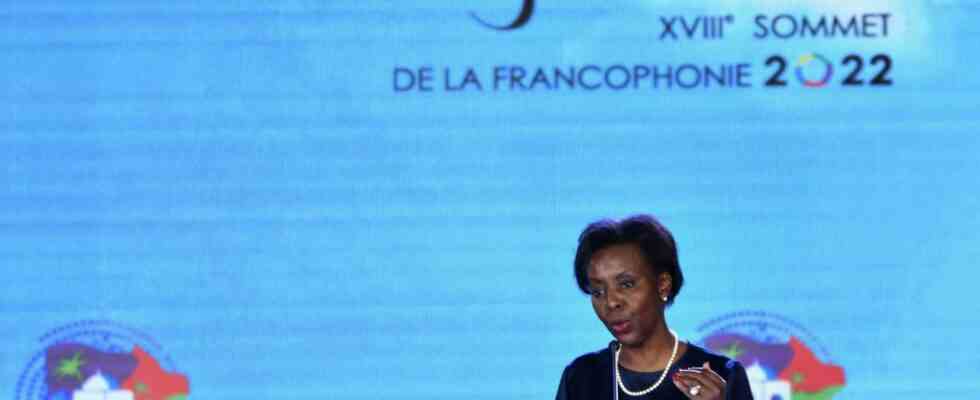The summit of the 88 member countries of the French-speaking bloc ended on Sunday, November 20 in Tunisia with the stated objective of having more influence in the settlement of crises, particularly in Africa. “Djerba did not disappoint… Tunisia did not disappoint”said the Secretary General of the International Organization of La Francophonie (OIF), Louise Mushikiwabo, during a press conference at the end of the summit. “We are on the way to a Francophonie of the future, modernized, much more relevant”she added.
On the island of Djerba, Sunday work was largely devoted to “citizen mistrust”with populations tired of “turbulence” politics, particularly in West Africa where there have been recent coups d’etat in Mali or Burkina Faso. “All conflict areas have been subject to long debates”detailed Mme Mushikiwabo, the former head of Rwandan diplomacy, questioned on the tensions between the Democratic Republic of Congo and Rwanda, or between Armenia and Azerbaijan. “La Francophonie is an organization that supports, a catalyst” to work “to mediate between parties in conflict”she pointed out.
But this organization with limited budgetary means acts above all via “technical support”, for example for the preparation of elections. And for the mediation of conflicts, the OIF works “in subsidiarity to regional organizations closer to the conflicts”. On the other hand, the leaders gathered in Djerba want, according to her, “continue the reflection to improve the relationship between citizens and governments in a much more inclusive format” and open to civil societies.
No consensus on the war in Ukraine
The Djerba Declaration, adopted at the end of the summit, also contains a “clear statement”, the content of which has not been disclosed, on the Russian invasion of Ukraine, at the request of President Emmanuel Macron. However, there is no consensus on this burning issue on the African continent where some countries are very close to Russia and regret the Western eagerness to help Ukraine, which contrasts with a lack of interest in their own crises. Present on Saturday in Djerba, Mr. Macron advocated a “Francophonie of action”acknowledging that the use of the French language had declined in recent decades in the Maghreb countries
The summit also re-elected Mme Mushikiwabo, alone in the running, at the head of the OIF for a new four-year term, and appointed France to the presidency of La Francophonie in 2024, to succeed Tunisia.
Strengthen the presence of French
For Leila Slimani, special representative of Mr. Macron, the meeting gave “a breath of fresh air” to La Francophonie, an area of 321 million speakers called to become 750 million by 2050, thanks to African demography. La Francophonie must, in her view, “position itself more firmly in favor of multilateralism” and “taking on new global challenges”be it the climate or political crises.
Rejecting “every language fight”noting that all countries except France use other languages, Mme Mushikiwabo called for investing in and improving education in French on the African continent.
Another project: to strengthen the presence of French on the Internet and in international organizations, where the language of Molière is in decline, including within the European bloc of the OIF, the second largest (19 countries) behind Africa (32 country).
The OIF also wants, according to the Secretary General, to strengthen the “Economic Francophonie”increased cooperation within the French-speaking world, which will notably involve digital technology, one of the main themes of the summit extended by an Economic Forum until Monday.
Training for 250,000 young people are planned in particular, encouragement for SMEs and French-speaking missions such as those which took 200 economic operators to Southeast Asia, Vietnam and Cambodia, two member countries of the OIF, to Rwanda or Gabon.
For women’s entrepreneurship, another theme of the summit, the head of the OIF called on member states to provide more funding for the fund’s projects. “La Francophonie with them”.
The 2024 Francophonie summit will be held in France for the first time in more than 30 years, at the Château de Villers-Cotterêts, in Aisne, headquarters of the future Cité internationale de la langue française, Emmanuel Macron also announced on TV5 World.

